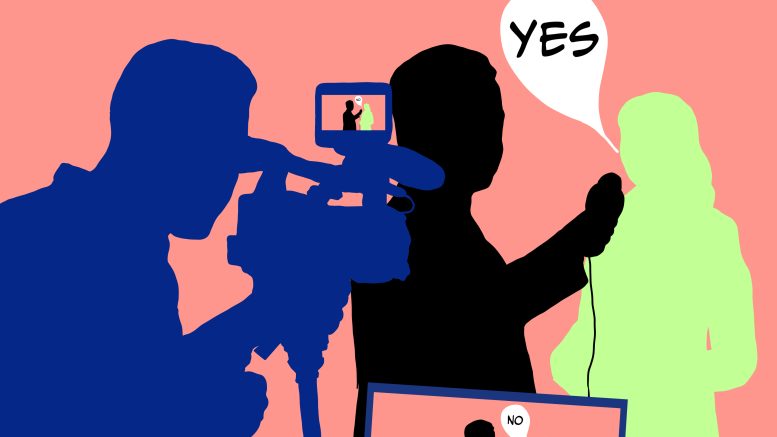As a linguistics graduate and former student journalist who now works in communications, I am well aware of the power of words. It seems that, despite literally working with words as a profession, many journalists in Winnipeg do not understand this power.
In my experience, people’s knowledge of international politics largely comes from the news. Think of the number of major news events that you have witnessed with your own eyes, and compare it to the number of events you haven’t directly observed. I guarantee that the second number is hundreds of times greater than the first.
Because a journalist is sometimes the only person conveying this information to the public, whatever they say becomes the truth. Their ability to manipulate the perception of reality itself makes them more powerful than all the world’s doctors, lawyers and engineers combined.
Given the seriousness of this profession, it deeply upset me to find out that journalists in my own city had engaged in some pretty scummy reporting.
Kliel Rose, a rabbi in my community, gave a long interview with the CBC about the 2023 war between Israel and Hamas. The news station only quoted a very short segment of the interview, which gave the impression that Rose does not decisively side with Israel.
He has since clarified that he is in fact pro-Israel, and that the sound byte used was taken out of context.
Another community leader in Winnipeg who I love and respect as much as Rose was also the target of irresponsible journalism.
Ramsey Zeid is the president of the Canadian Palestinian Association of Manitoba. He has been involved in organizing several pro-Palestine rallies in Winnipeg.
An article about how the Winnipeg Police were responding to Hamas’ calls for violence in October by the Winnipeg Sun ran with an image of Zeid. Using the image in an article about Hamas falsely implied Ramsey was affiliated with Hamas. After the article was published, Ramsey experienced an onslaught of abuse and threats. The Winnipeg Sun released a correction, but the damage had already been done.
Although Rose and Zeid have essentially opposite politics on Israel-Palestine, I see a common thread between their experiences. In both cases, the offending journalists overstated how anti-Israel the two men are.
The reason for the exaggeration is obvious to me. People who oppose Israel in any way are sensationalized by the western press. When they aren’t being called terrorists, they are treated as laughingstocks.
Anti-Zionists from within the Jewish community are a particularly exotic feast for the depraved journalists who play this game. Making Rose seem like a potential anti-Zionist was a cheap but effective way to increase the scandal in an already very scandalous situation.
Accusations of not supporting Israel are particularly damaging in the Jewish community, because it is often considered a form of betrayal. It takes remarkably little evidence to receive an anti-Israel diagnosis, and journalists throwing around half-truths make it worse.
In fact, I feel terrified to write this article, and to publicly state that I am friendly with Zeid. I’m worried that my own community will cast me as an Israel-hating villain, just like the media did to Rose and Zeid. However, I believe that the message I have to share about that same media is vastly more important than my reputation.
If any of my readers are planning an angry response letter complaining that I am anti-Israel or condone terror, don’t bother. You would be missing the point of the article and proving it at the same time.


